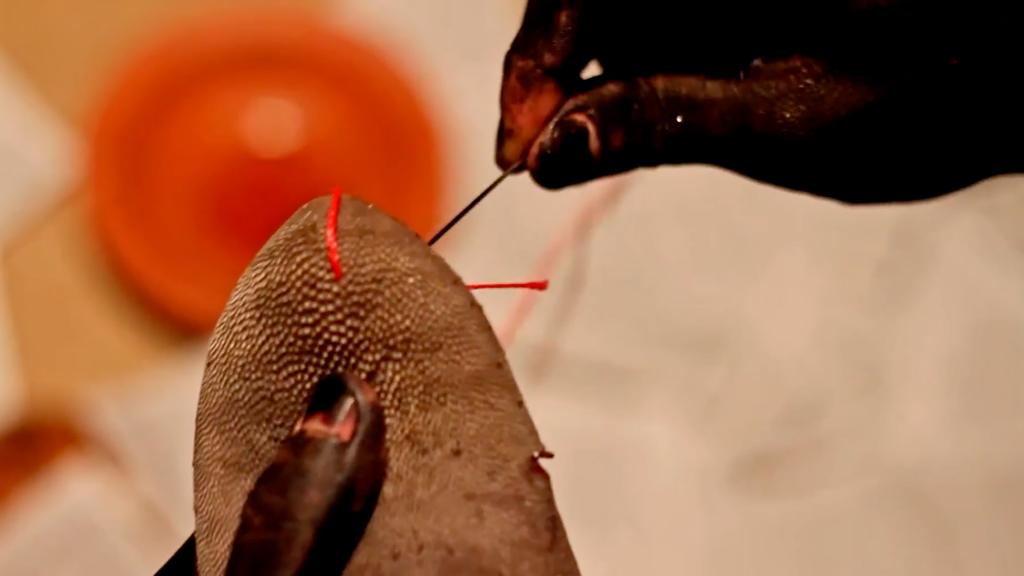- Program
- /
- Film Series
- /
- No terra nullius
- /
- Autonomia e Direito
Autonomia e Direito
The screening is followed by a conversation moderated by Ana Correa
O verbo se fez carne (the verb became flesh)
Ziel Karapotó, Brazil 2019, 7 min. Portuguese with English subtitles, digital
Os espíritos só entendem nosso idioma (The spirits just understand our language)
Cileuza Jemjusi, Robert Tamuxi and Valdeilson Jolasi, Brazil 2019, 5 min. Portuguese with English subtitles, digital
A mãe de todas as lutas (The mother of all struggles)
Susanna Lira, Brazil 2020, 84 min. Portuguese with English subtitles, digital
Amid the turbulence of Brazilian politics and the countless social and environmental setbacks that characterise extreme right-wing governments in Latin American history, indigenous peoples are still resisting and will continue to resist the colonisation of their lands and bodies by the white man. The contemporary scenario brings together people of different races, backgrounds and social classes as they join the struggle for land, for the right to exist and coexist, for autonomy over their movements, and to prevent future environmental catastrophes.
In the experimental short film O verbo se fez carne, indigenous artist Ziel Karapotó uses his body to denounce five centuries of colonisation while in Os espíritos só entendem nosso idioma we encounter a cinematic poem in the nearly extinct language of the Manoki people in the Brazilian Amazon. Finally, A mãe de todas as lutas brings the strength of female leaders in the struggle for land: Maria Zelzuita, survivor of the Eldorado do Carajás massacre, and Shirley Krenak, whose life was cut short by the collapse of the Fundão dam in Mariana, Minas Gerais, which devastated the Rio Doce in 2015. (TO)
Ziel Karapotó is originally from the Karapotó Terra Nova community, São Sebastião - AL, and has a degree in Visual Arts from the Federal University of Pernambuco. He is a multi-artist, cultural producer, curator, performer and audiovisual director. He has lived in Recife (PE) since 2015. He is a member of the research group "Science and Indigenous Art in the Northeast" (CAIN-UFPE) and an artist-researcher in the project "Cultures of Antiracism in Latin America" (CARLA-UFBA). Since 2021, he has been the general coordinator of the Karaxuwanassu Indigenous Association in Urban Context (ASSICUKA). His career is marked by productions and activities in the field of visual arts and audiovisual on the national and international stage.
Cileuza Jemjusi, Robert Tamuxi und Valdeilson Jolasi are young leaders of the Paredão village, of the Manoki indigenous people, members of the Ijã Mytyli Collective of Manoki and Myky Cinema, and “Os Espíritos Só Entendem O Nosso Idioma” is their debut work. The work was conceived at LISA (The Image and Sound Laboratory in Anthropology from the University of São Paulo).
Susanna Lira is a filmmaker with postgraduate degrees in Philosophy, International Law and Human Rights, specializing in criminal biopolitics. She has directed 15 feature films and dozens of shorts and series. Among her most notable films are: A Mãe De Todas As Lutas (2021), Prazer Em Conhecer (2020), Torre Das Donzelas (2018), Mussum, Um Filme Do Cacildis (2018), Legítima Defesa (2017), Clara Estrela (2017); Intolerância. Doc (2016); Mataram Nossos Filhos (2016); Levante! (2015); Damas Do Samba (2015); Porque Temos Esperança (2014); Uma Visita Para Elizabeth Teixeira (2011); Positivas (2010); Contracena (2009); Câmera, Close! (2005). She has a long and renowned career as a director, and has even been honored in several countries: at the Mar del Plata Independent Film Festival 2016 in Argentina, with the exhibition "Susanna Lira - Hasta el limite"; at the Tenemos que ver Festival in Uruguay in 2018 and at the FEMCINE Festival in Chile in 2019.
Ana Catalina Correa is a visual anthropologist and archaeologist whose research revolves around the intersections of art, materiality, and narratives. Her expertise spans historical, social, and media research, complemented by experience in museum and art collections management. Ana's significant contributions include her involvement in the Narcolombia project, where she explored the circulation of images within the frame of Narco-aesthetics, and the Topographies of Power project, investigating materialities and narratives at the National Police Museum in Bogotá, Colombia. She holds a Bachelor's degree in Anthropology from the University of the Andes and completed her Master's degree at HMKW. Ana's passion for research extends to sharing her knowledge as an assistant professor at the Department of Anthropology, Universidad de los Andes, as well as serving as an associate researcher at Universidad Alberto Hurtado and coordinating the Social Conflict and Violence Group at the National University of Colombia.
